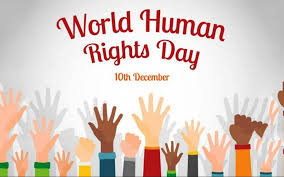Human rights are entitlements that every person has simply because they are human, and they accrue to every person equally. On 10 December 1948, the United Nations (UN) General Assembly adopted the Universal Declaration of Human Rights (UDHR) in recognition of everyone’s entitlement to human rights regardless of their race, colour, sex, language, religion, political or opinions, national or social origin, property, birth or other status. Since then, 10 December has been commemorated as International Human Rights Day. Today, the National Transitional Justice Working Group (NTJWG) joins the UN and the rest of the world in commemorating International Human Rights Day under the theme ‘Dignity, Freedom and Justice for All.’
As Zimbabwe continues to rebuild and recover from the effects of the COVID-19 pandemic while preparing for the 2023 harmonised elections, recognition of the inherent dignity of all must be prioritised. Section 51 of the Constitution of Zimbabwe, 2013, recognises that every person has inherent dignity and the right to have that dignity respected and protected. Despite this constitutional provision, Zimbabwean elections have become synonymous with violence. Electoral violence often impugns the dignity of those targeted and results in wrongful imprisonment and denial of justice for victims as perpetrators are not held accountable.
The 2018 post-election violence as well as the March 2022 and October 2022 by-election violence, are all examples of instances in which the dignity of Zimbabweans has been impugned through violent attacks against them for which nobody was held accountable, which denied them justice. For Zimbabwe to ensure that the dignity of all is respected, it is crucial to address cases where human dignity is impugned by holding perpetrators accountable for their actions and putting measures in place to ensure the non-recurrence of violations. Failure to do this only encourages the existing culture of impunity and denies victims the justice they deserve.
Given the high poverty levels in the country, the NTJWG also emphasises the need for all Zimbabweans’ dignity to be respected with regard to the distribution of food aid. Denying food aid to community members based on their political affiliations exposes them to the risk of hunger and denies them the opportunity to live a dignified life with access to the basics required for survival.
The NTJWG condemns the partisan distribution of food aid and calls for local authorities to desist from using food aid as a political weapon in the upcoming elections. Furthermore, the NTJWG calls upon the National Peace and Reconciliation Commission and the Zimbabwe Human Rights Commission to work together to investigate reports of partisan food distribution and take the necessary steps to end this deplorable practice.
Post published in: Featured


